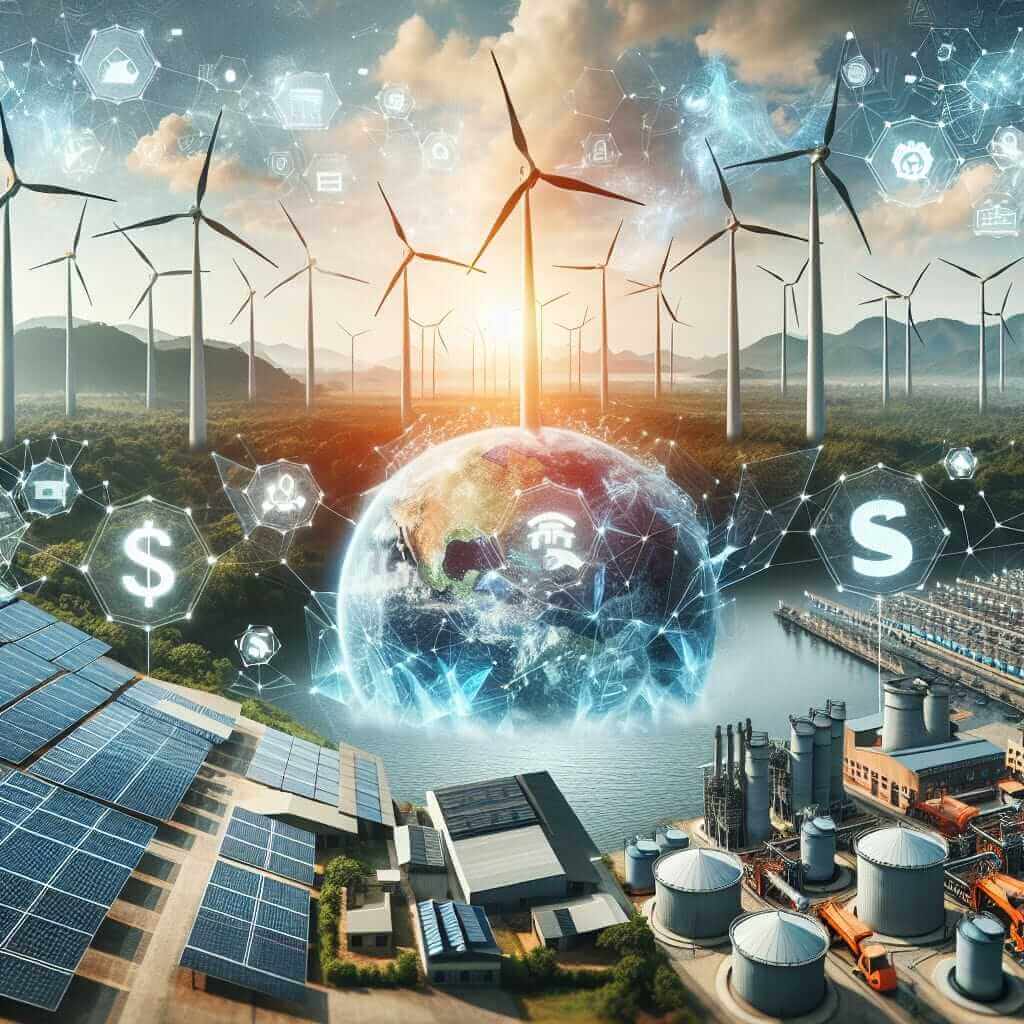The IELTS Reading test is known for its wide range of topics, reflecting modern issues and academic interests. A frequently appearing theme is renewable energy and its impact on the global economy. This topic has been addressed multiple times in past exams due to its relevance and the rich vocabulary it entails. This article aims to provide a comprehensive practice reading passage on “How does renewable energy affect the global economy?” and related questions, helping test-takers familiarize themselves with this important subject.
Practice Reading Passage
Renewable Energy and Its Impact on the Global Economy
Renewable energy sources, such as solar, wind, hydroelectric, and geothermal energy, are becoming increasingly integral to the global economy. As countries strive to reduce their carbon emissions and transition to green energy, the economic implications are profound and multifaceted.
Economic Growth and Job Creation
The renewable energy sector is a major engine of economic growth. According to a report by the International Renewable Energy Agency (IRENA), renewable energy jobs worldwide surpassed 11 million in 2018 and continue to grow. This sector not only generates local employment during the installation and maintenance of renewable energy systems but also fosters new industries and technologies.
Energy Independence and Security
Investment in renewable energy reduces dependency on imported fossil fuels. Countries can attain greater energy security by harnessing their own natural resources. For instance, nations with abundant sunlight or wind can generate electricity at a lower cost and with more predictability than those reliant on international fuel markets.
Cost Reductions and Technological Advancements
Technological advancements in renewable energy have led to significant cost reductions. Solar power, in particular, has seen a dramatic decrease in price, making it one of the cheapest electricity sources globally. These cost reductions stimulate economic activity by lowering energy expenses for consumers and businesses alike.
Sustainable Development and Climate Mitigation
Renewable energy supports sustainable development by reducing greenhouse gas emissions and other pollutants. This not only helps combat climate change but also promotes better health outcomes by improving air quality. Moreover, investments in green technologies foster innovation and long-term economic resilience.

Questions
-
Multiple Choice
-
According to the passage, which sector is primarily responsible for the economic growth mentioned?
- A. Fossil fuels
- B. Renewable energy
- C. Nuclear energy
- D. Digital technology
-
The decline in costs mentioned in the passage primarily refers to which energy source?
- A. Wind power
- B. Solar power
- C. Hydroelectric power
- D. Geothermal energy
-
-
True/False/Not Given
- Renewable energy jobs reached 12 million worldwide in 2018.
- Investment in renewable energy can help countries achieve energy independence.
- Technological advancements in renewable energy have increased the cost of solar power.
-
Matching Information
-
Match the following impacts of renewable energy to the respective description:
- A. Economic growth
- B. Energy security
- C. Sustainability
- D. Technological innovation
- Leading to greater health outcomes and better air quality.
- Creating employment and stimulating new industries.
- Enhancing long-term economic resilience and reducing energy costs.
- Reducing dependency on imported fuels.
-
Answers and Explanations
-
Multiple Choice
- B. Renewable energy
- Explanation: The passage clearly states that the renewable energy sector is a major engine of economic growth.
- B. Solar power
- Explanation: The passage mentions that solar power has seen a dramatic decrease in price.
- B. Renewable energy
-
True/False/Not Given
- False
- Explanation: The passage states the renewable energy jobs surpassed 11 million in 2018, not 12 million.
- True
- Explanation: The passage explains how investment in renewable energy reduces dependency on imported fossil fuels, thus supporting energy independence.
- False
- Explanation: Technological advancements have actually led to a decrease, not an increase, in the cost of solar power according to the passage.
- False
-
Matching Information
-
- C. Sustainability
- Explanation: Better air quality and health outcomes are associated with sustainability.
-
- A. Economic growth
- Explanation: Creation of employment and stimulation of new industries are impacts of economic growth.
-
- D. Technological innovation
- Explanation: Enhancing long-term economic resilience and reducing energy costs fit the description of technological innovation.
-
- B. Energy security
- Explanation: Reducing dependency on imported fuels corresponds to energy security.
-
Common Mistakes
- Misunderstanding True/False/Not Given questions: Always base your answers on the passage content exclusively, avoiding assumptions.
- Matching Information confusion: Carefully read the descriptions to ensure you match them correctly with the passage.
Vocabulary List
- Integral (adj) /ˈɪntɪɡrəl/: Necessary to complete the whole.
- Profound (adj) /prəˈfaʊnd/: Of deep meaning; significant.
- Technological advancements (n) /ˌtɛknəˈlɑːdʒɪkl ədˈvɑːnsmənts/: Progress in technology.
- Foster (v) /ˈfɒstər/: To encourage development.
- Resilience (n) /rɪˈzɪliəns/: The ability to recover from difficulties.
Grammar Focus
- Passive Voice: “Jobs worldwide surpassed 11 million in 2018.” Passive voice can be effectively used to focus on the action rather than the subject.
- Comparative structures: “Solar power is one of the cheapest electricity sources globally.” Utilizing comparative structures helps in drawing clear comparisons.
Conclusion
Practicing with a reading passage tailored to real IELTS formats can significantly boost your confidence and performance. Focus on understanding the context, expanding your vocabulary, and mastering the question types. For more practice, consider exploring other resources here.
Study Tips
- Regularly read articles on current issues like renewable energy to build topic familiarity.
- Practice different question types to sharpen your test-taking strategies.
- Review grammar and vocabulary in the context of reading passages for better retention and understanding.